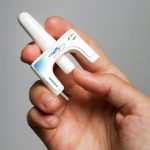
It’s well known that it’s unhealthy to have belly fat accumulating around your abdominal organs, but there’s a more insidious form of fat that could be even more hazardous to your health, a new study says. Fat that infiltrates your muscles appears to dramatically increase your risk of death, according to findings published May 16 in the journal Radiology. Fatty muscle — a condition called myosteatosis — was associated with a 15.5% increase in absolute risk of death in a group of healthy adults, researchers found. By comparison, obesity appeared to increase participants’ absolute mortality risk by only 7.6%, results show. Fatty liver disease raised risk by 8.5% and muscle wasting by 9.7%. “The signal [for muscle fat risk] was so much stronger for this otherwise healthy cohort,” said senior researcher Dr. Perry Pickhardt, chief of gastrointestinal imaging at the University of Wisconsin School of Medicine and Public Health. “It really stood out as a strong biomarker beyond the things I think we all accept as important measures. “I think there’s going to be profiling of patients where if you line up myosteatosis with a very fatty liver or maybe abundant visceral fat, you might be a lot worse off than if you just had one of those or two of those,” Pickhardt added. Muscle fat has been a subject of increasing interest in the… read on > read on >





























-300x200.jpg)







-300x169.jpg)
